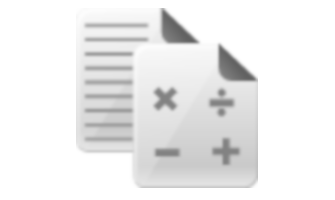The nature of science
Science, Grade 5
The nature of science
Study Guide

The nature of science
Flash Cards

The nature of science
Quiz

The nature of science
Worksheets

The nature of science
Games

Study Guide The nature of science Science, Grade 5
❮
1
/
3
❯
THE NATURE OF SCIENCE Science process skills include observing, classifying, estimating, measuring, inferring, predicting, creating graphs, and developing models….just to name a few! Scientific Method Scientists use the scientific method when they conduct experiments and investigations. You can be a scientist too! When conducting an experiment, you might use all or only some of the steps in the scientific method: Steps to Using Scientific Method Step 1: Ask a question about something you observe. Step 2: State your hypothesis, which is a possible answer to your question. Step 3: Identify your control variable, which is the part of your experiment that is not and is used for comparison. Step 4: Test your hypothesis by conducting an experiment. Step 5: Collect and record your data during your experiment. Step 6: Interpret your data – check your notes and observations. Step 7: State your conclusion, which explains whether or not your results support your hypothesis. Lesson Checkpoint: What are the steps of the Scientific Method? Identify Dependent and Controlled Variables A dependent variable is the variable that is being observed during an experiment. A control variable is the part of an experiment that you do not make any changes to which you can use to compare the other parts of your experiment to. During an Experiment During an investigation, you often will make predictions, interpret your results, draw conclusions, and justify your conclusions. During your experiments, you should create charts and graphs to show your data results to justify the predictions you have made during your investigations. © Copyright NewPath Learning. All Rights Reserved. Permission is granted for the purchaser to print copies for non-commercial educational purposes only. Visit us at www.NewPathLearning.com.
Science Tools There are many scientific tools you will use during your investigations and experiments. Many tools will help you observe and measure various things while conducting an experiment. These tools will help gather data during your investigations, draw conclusions, and interpret your results. Here are some tools you may use during an experiment: Tools Used to Observe Things Closer and in MORE Detail: • Telescopes – used to see things very, VERY far away, like stars • Hand lens/magnifying lens – used to enlarge an object or item • Binoculars – used to make object far away seem larger • Microscopes – used to make tiny things appear much larger than they are Tools Used to Measure: • Thermometer – used to measure temperature • Balance – used to measure mass • Rulers/meter sticks – used to measure length • Graduated cylinder – used to measure volume • Stopwatch – used to measure time • Spring scale – used to measure force of gravity on an object Tools Used for Recording: • Tape recorder – used to record sounds • Camera – used to take pictures A Tool Used for a Heat Source: • Hot plate – used to create heat Tools Used for Calculating and Recording: • Calculator - - used for figuring out—or calculating—various equations or number sentences • Computer – used for recording, collecting, and organizing information. Lesson Checkpoint: What is one tool used for measuring? © Copyright NewPath Learning. All Rights Reserved. Permission is granted for the purchaser to print copies for non-commercial educational purposes only. Visit us at www.NewPathLearning.com.
Safety in the Lab Please read over the following important rules and guidelines to follow when you are conducting an experiment or investigation. Listen to ALL directions before beginning – even if you think you know what to do! Always wear goggles to protect your eyes. Clean up all spills right away. Never taste anything used during an experiment. Handle all equipment carefully, especially sharp or breakable tools. If something doesn’t look or smell right, tell an adult right away. Put all supplies away when your experiment is completed. Wash your hands thoroughly when you are all finished. Lesson Checkpoint: Name one safety rule you should follow while conducting a scientific experiment and state why it is important to follow this rule. © Copyright NewPath Learning. All Rights Reserved. Permission is granted for the purchaser to print copies for non-commercial educational purposes only. Visit us at www.NewPathLearning.com.
